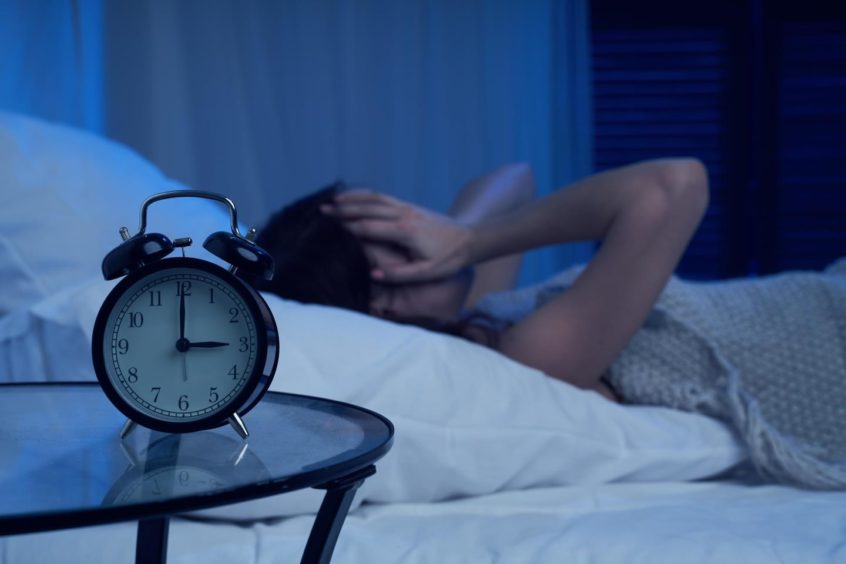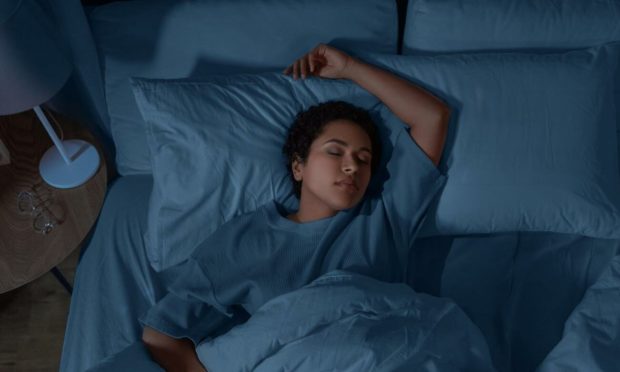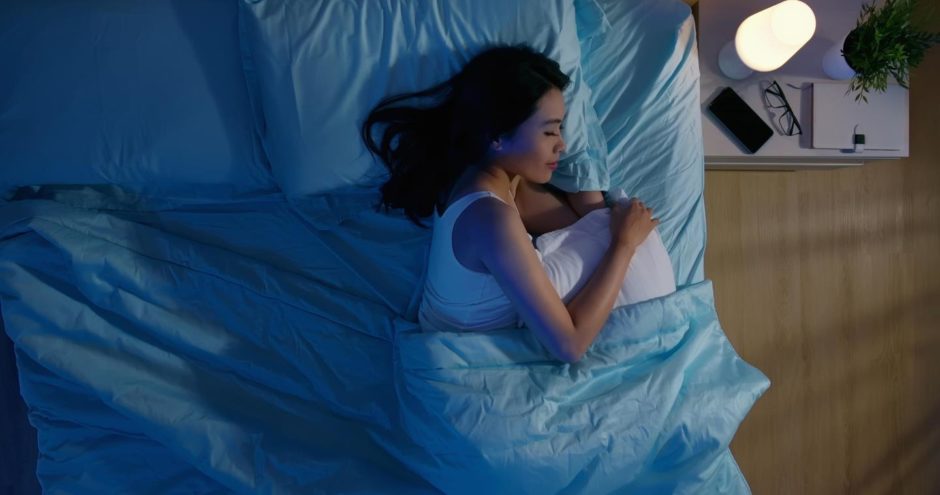How do you sleep during your period? New research says many women are reporting disruptions in the lead up to their period.
The occasional disrupted night is not usually cause for concern, but many are reporting poorer quality sleep throughout various stages of their cycle.
The new research found hormone fluctuations and symptoms of premenstrual syndrome (PMS) to be the main disruptors of sleep.
Hormone fluctuations
Sleep patterns are regulated by our internal circadian rhythms, which are influenced by fluctuations in oestrogen and progesterone levels throughout the cycle.
Sleep is rarely interrupted during the first half of the cycle, with most issues beginning after ovulation.

This is because after ovulation, levels of cortisol – the ‘stress hormone’ – can increase.
Simultaneously, melatonin – the hormone that regulates sleep cycles – decreases, meaning body temperature is slightly higher, and REM sleep may alter.
During the week before your period, the drop in both oestrogen and progesterone can lead to disturbed sleep.
Those who have regular periods or are in teenage, perimenopausal and menopausal years might also experience night sweats which can be uncomfortable and disrupt sleep.
PMS and overthinking
Painful physical symptoms of PMS in the days before a period are also causing sleepless nights for many.
The report for Drops Le Col – a cycling team researching peak wellness for its riders – explored the impact of periods on sleep.
They found headaches, stomach cramps, changes in mood, appetite, and energy levels, feeling too warm in bed, and more sensitivity to light and noise levels all factored.
How to get a good night’s sleep
Most women find discomfort from PMS symptoms decreases within a day or two after their period begins, but sleep can still be disrupted.
- Ensure you’re getting plenty of rest while on your period: Your body is working harder, so it’s natural to feel more tired.
- Do your best to stick to a regular sleeping pattern – a warm shower or bath and leaving your phone out of the bedroom will help.
- Eat a diet rich in iron and fibre, drink plenty and try to include fitness daily, as exercise helps improve sleep.
- Don’t worry about sleeping. Simply resting and calming your mind while lying in bed offers your mind and body time to recuperate.
When to seek help
If sleep problems persist or interfere with your ability to function during the day, it is important to seek professional help from your GP.
They will be able to provide advice or identify if there is another underlying issue causing your poor sleep.
Sleep is cyclical by nature; we need good sleep to be healthy, and we need to be healthy to have good sleep.
Sleep problems relating to periods can be managed with hormone supplements, lifestyle changes, and cutting back on caffeine and alcohol.

